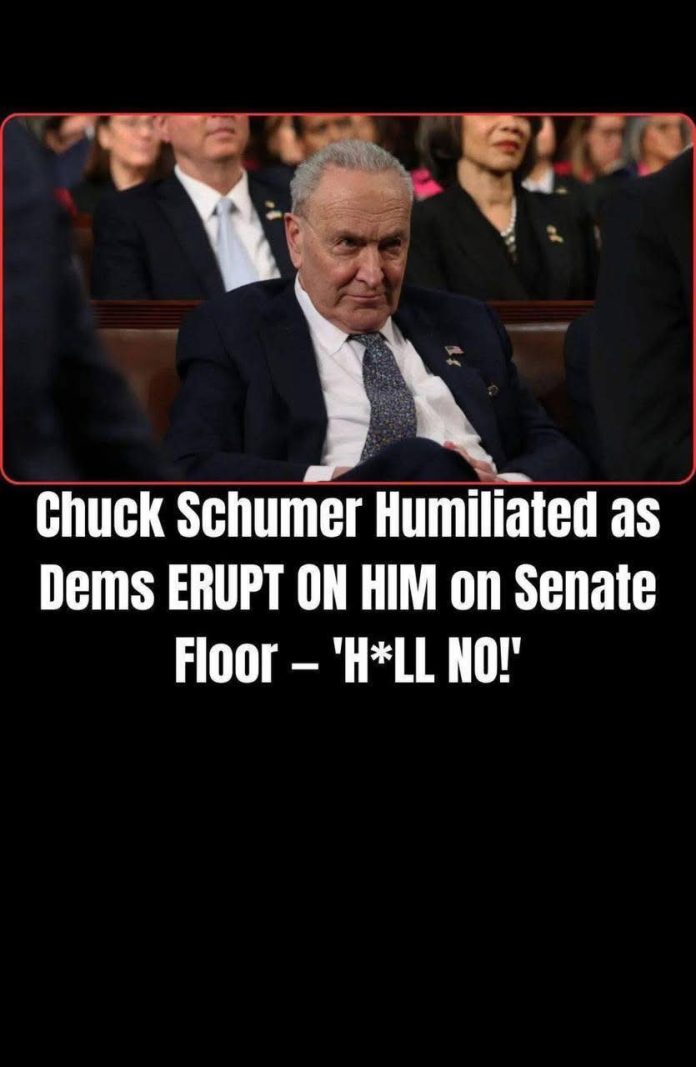Party Divisions Come to the Surface
According to multiple congressional sources, Schumer proposed a temporary spending extension that would keep the federal government open for roughly a week while negotiations continued with Republicans and the White House. The short-term plan, lasting seven to ten days, was intended to buy Democrats more time to reach a long-term funding agreement that included provisions for healthcare subsidies and other key Democratic priorities.
However, the idea was met with fierce opposition from members of the House Progressive Caucus, who accused Schumer of capitulating to Republican demands and weakening the party’s negotiating power.
“Hell no. We don’t need a delay and a pinky promise to negotiate,” said Rep. Greg Casar (D-Tex.), a leading progressive voice, in a post on social media. “We need a deal that keeps the government open and protects healthcare for Americans. Republicans have refused to negotiate for months—why should Democrats acting weak change anything?”
Casar’s comments captured the frustration of many on the party’s left flank, who view any temporary measure as a political retreat rather than a strategic pause.
The Shutdown Deadline Approaches
The latest round of internal debate comes just as the federal government faces another critical deadline. Unless Congress reaches an agreement, funding will expire at 12:01 a.m. Wednesday, forcing a partial government shutdown.
The impasse centers on several key issues: extending Affordable Care Act (ACA) subsidies, funding for public health and social programs, and restoring cuts that Democrats argue have disproportionately hurt low-income Americans.
While Schumer and moderate Democrats favor short-term funding to prevent disruption of federal services, progressives insist that temporary measures only delay inevitable conflict and allow Republicans to dictate the terms.
“It’s not leadership to kick the can down the road,” said a Democratic strategist familiar with the negotiations. “The base wants a fight for working families, not another week of stalling.”
A History of Strategic Shifts
This isn’t the first time Schumer has faced criticism from his own party over fiscal strategy. Earlier this year, he led a bipartisan effort to pass a continuing resolution that prevented a shutdown in March. At the time, he defended the move as necessary to protect American families and businesses from economic harm.
“It is my responsibility to minimize harm to the American people,” Schumer said on the Senate floor earlier this year. “That means keeping the government open, even when it’s politically difficult.”
However, after that vote, progressive Democrats erupted in frustration, accusing Schumer of compromising too easily. Since then, growing speculation about potential primary challenges — including rumors that Rep. Alexandria Ocasio-Cortez (D-N.Y.) might consider a future Senate run — has reportedly increased pressure on Schumer to demonstrate stronger progressive credentials.
“The political reality is shifting,” one Democratic insider told Axios. “There’s a growing perception among younger Democrats that Schumer represents the old guard — cautious, transactional politics that no longer inspires the base.”
Public Rejection of Short-Term Deal
When asked at a recent press conference about the possibility of a short-term spending package, Schumer publicly rejected the idea, calling it a “distraction from real solutions.”
“We don’t need more delays,” Schumer told reporters. “We need a comprehensive deal that keeps the government open and addresses our national priorities.”
His remarks contradicted his earlier private discussions about using a temporary funding measure as a tactical step — a shift that only deepened frustration among House Democrats.
According to Axios, several members privately described Schumer’s approach as “confusing” and “out of touch.” One unnamed lawmaker reportedly quipped, “I’m not sure why grandpa is doing this — it shows how disconnected he is from where the country is at.”
While such comments may reflect youthful impatience more than organized rebellion, they highlight a widening generational divide in the Democratic Party, where the appetite for confrontation often clashes with leadership’s preference for incremental compromise.
White House and GOP Response
At the White House, officials have largely avoided commenting on Democratic infighting, though Press Secretary Karoline Leavitt noted that the administration remains committed to “responsible governance and fiscal discipline.”
“The president believes in bipartisan solutions,” Leavitt said. “But Democrats must first decide what they actually stand for — and who they’re willing to work with.”
Republicans, meanwhile, have seized on the Democratic divisions as evidence of a party in disarray. House Speaker Mike Johnson (R-La.) criticized Schumer for failing to unite his caucus.
“While Democrats argue among themselves, the American people are paying the price,” Johnson said. “It’s time for real leadership, not political theater.”
Some GOP senators have suggested that Schumer’s hesitation stems from political pressure rather than genuine negotiation challenges.
“He’s being pulled in two directions — the far left wants chaos, and the moderates want stability,” said Sen. Lindsey Graham (R-S.C.). “It’s hard to lead when your own team won’t follow.”
The Progressive Surge
The ongoing dispute underscores the growing influence of the progressive movement within the Democratic Party. Lawmakers like Casar, Ocasio-Cortez, and Rep. Ilhan Omar (D-Minn.) have pushed for a more aggressive stance on spending, healthcare, and social justice, arguing that compromise undermines Democratic values.
Progressive activists have also used the standoff to mobilize supporters, framing the shutdown fight as a test of political will.
“This isn’t just about keeping the lights on in Washington,” said Maya Torres, a spokesperson for the grassroots group Justice Now. “It’s about whether Democrats have the courage to stand up for the people who put them in power.”
Schumer’s Balancing Act
For Schumer, the challenge lies in balancing the pragmatic need to avoid a shutdown with the ideological demands of his party’s base. Allies insist that his goal remains to keep the government functioning while pushing for long-term reforms through negotiation, not confrontation.
“Chuck is a dealmaker, not a showman,” said one Senate aide close to Schumer. “He understands that you can’t govern by protest alone.”
Still, critics argue that his cautious style risks alienating voters who want decisive action.
“If Democrats can’t show unity on something as basic as funding the government, it’s hard to imagine them inspiring confidence heading into an election year,” said political analyst Dr. Raymond Ellis.
Looking Ahead
As the shutdown deadline approaches, the Democratic Party remains deeply divided over strategy and messaging. While Schumer continues to meet privately with senior lawmakers to forge consensus, public patience is wearing thin.
The coming days will likely determine not only the fate of the federal budget but also the future of Democratic leadership in the Senate. Whether Schumer can hold his party together—or whether the growing wave of progressive discontent will reshape its direction—remains to be seen.
For now, Washington remains gridlocked, and Americans are left watching as political calculations overshadow governance once again.
“The real losers in all this are ordinary citizens,” said policy expert Hannah Cole. “They don’t care about party politics—they just want a functioning government.”

